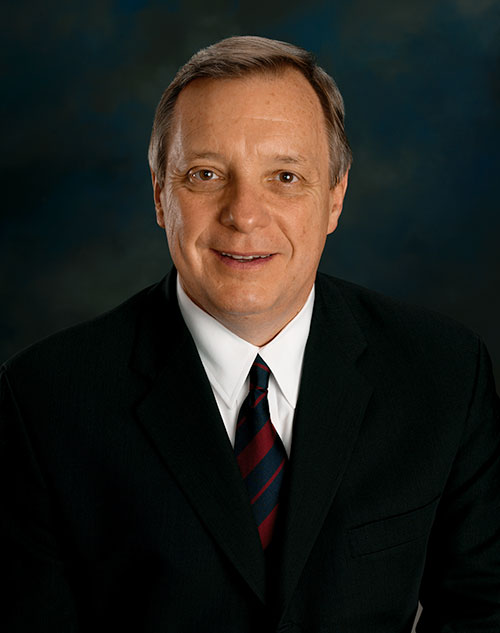Merchants have complained for years that they pay too much for debit card acceptance. Late last week, they took their beef to the federal courts with a lawsuit alleging a ceiling set on debit card fees a decade ago by the Federal Reserve is too high and seeking to have it reduced.
The case, filed in U.S. District Court in Bismarck, N.D., by the North Dakota Retail Association and the North Dakota Petroleum Marketers Association, argues merchants have paid “billions” of dollars more than they would have had the Fed followed the letter of the Durbin Amendment to the 2010 Dodd-Frank Act. The action comes as debit payment volumes skyrocketed last year with U.S. consumers’ shift to debit cards in the face of the Covid-19 pandemic. On the Visa network alone, debit payment volume totaled $2.23 trillion in 2020, up 15.2% over 2019, a year that saw a 9.7% growth rate.
The Fed set the debit cap at 21 cents, with an additional penny allowed for fraud prevention costs and 0.05% for recovery of fraud losses. The ceiling, which applies to financial institutions with $10 billion or more in assets, was lower than the average fee paid in 2009, which was 45 cents, according to the National Retail Federation. But merchants have complained that the ceiling is too high given the strictures of the law, costing them billions of dollars.

In a document accompanying the suit, Brady Lund, owner of a truck stop and convenience store in Watford City, N.D., said “inflated” debit-acceptance fees have forced him to raise prices and have cut into his profits. Lund’s document was cited in a news release issued Thursday by the NRF, which is not a party to the suit but has long been a critic of card-acceptance costs. Stephanie Martz, an NRF official, is co-counsel for the plaintiffs. A spokesperson said the Fed would not comment on the litigation.
“Since the Fed hasn’t acted voluntarily, it’s time for the courts to enforce the law,” Martz said in a statement. “Retailers are paying twice what they should and these fees ultimately drive up prices paid by the public. Banks should not be handed a growing windfall at the expense of Main Street stores and consumers.”
Some expert observers who are ordinarily at odds with efforts to control pricing for transaction processing nevertheless argue the merchants have a case. “The Fed is charged with implementing and enforcing policy, not making it,” says Eric Grover, principal at Intrepid Ventures, a Minden, Nev.-based consultancy, in an email message. “In implementing Durbin’s price caps the Fed took an exceedingly charitable view, I think at odds with the plain text of the statute, of what costs debit issuers could recoup through interchange. Merchants have a righteous beef with the Fed.”
The Durbin Amendment is named for its principal sponsor, Sen. Richard Durbin, D-Ill., who has long campaigned to reduce the so-called swipe fees merchants pay for card acceptance. Durbin in March attacked Visa and Mastercard for hikes they were planning for credit card interchange. The two networks have since postponed their pricing adjustments.
The Durbin Amendment restricts debit card acceptance pricing to cover incremental costs involved in authorizing, clearing, and settling transactions. The NRF and other merchant advocates argue that, despite frequent reviews of these costs, the Fed has failed to reduce the debit cap as the costs have fallen.





